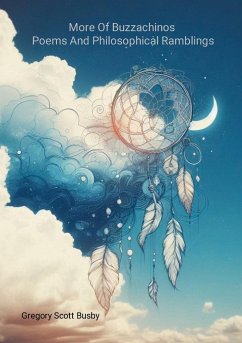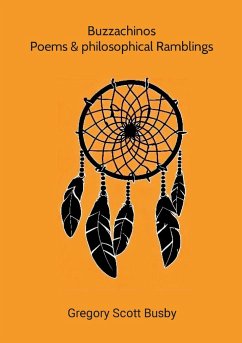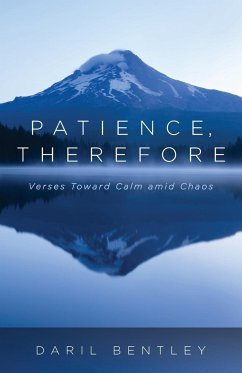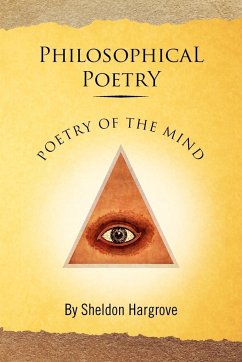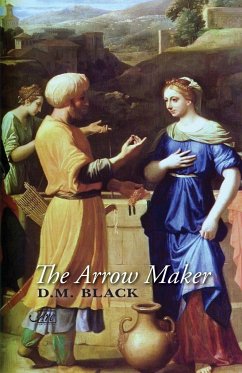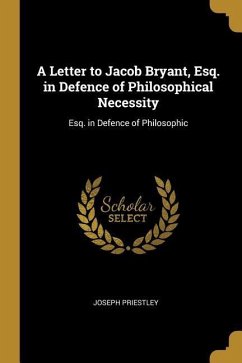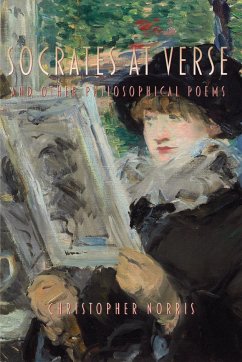
Socrates at Verse and Other Philosophical Poems

PAYBACK Punkte
11 °P sammeln!
These poems by a well-known philosopher and literary theorist take a lead from Plato's intriguing account of how Socrates turned to composing verse during his last few days despite having famously denounced its corrupting moral, social and political effects. Writing as a convinced formalist, Christopher Norris deploys a range of meters, stanza-forms and rhyme-schemes by way of exploring how the discipline of verse might relate to that of philosophical enquiry as practiced across the ages. Some of his poems have to do with individual thinkers, such as Berkeley, Hume, Kant, Schopenhauer, Kierkeg...
These poems by a well-known philosopher and literary theorist take a lead from Plato's intriguing account of how Socrates turned to composing verse during his last few days despite having famously denounced its corrupting moral, social and political effects. Writing as a convinced formalist, Christopher Norris deploys a range of meters, stanza-forms and rhyme-schemes by way of exploring how the discipline of verse might relate to that of philosophical enquiry as practiced across the ages. Some of his poems have to do with individual thinkers, such as Berkeley, Hume, Kant, Schopenhauer, Kierkegaard, Nietzsche, Wittgenstein, Adorno, and Derrida. Others are concerned with wider debates like those around the nature of time, the status of mathematical truths, the enduring puzzles of quantum mechanics, Kurt Gödel's Undecidability Theorem, the mind/body problem, the ontology of art, the nature of rules, and the role of luck in matters of moral judgment. Others again are philosophical in the non-specialist sense of confronting often-asked questions about love, memory, identity, character, social roles, choice, evolution, and animal sentience. What People Are Saying "I not only want to read it again. I want to emulate it. It's a liberating model of how, after a career in critical and philosophical prose, a writer can distill and animate the thoughts and thinkers with which and whom he has been long engaged." -DON BIALOSTOSKY "The poems in Socrates at Verse are not the mythic romantic odes of the nineteenth century, nor the very difficult lyrical sequences of the twentieth. Rather, these poems are more akin to eighteenth century British verse-a "poetry of ideas" that is wonderfully witty and fun. The poems are easy to grasp and understand-more deeply if one has a knowledge of or penchant for the particular philosophers, issues, or ideas treated in each. Reminiscent of the poetic genre dubbed "occasional verse" (constrained as it is by subject or situation), these poems skirt the dangers of stilted language, forced rhymes. They are freshly humorous (if not sarcastic), entertaining (and not at all self-absorbed)." -STEVE KATZ About the Author CHRISTOPHER NORRIS is Emeritus Professor in Philosophy at the University of Cardiff. He has published more than thirty books on topics in philosophy, literary theory, the history of ideas, cultural politics, and musical criticism. Norris's books on deconstruction were among the first to introduce Derrida's thought to an Anglophone readership and to establish its jointly philosophical and literary bearings. More recently he has turned to writing poetry and verse-essays that often draw on those earlier interests to generate a new kind of creative writing focused on the various complex intersections of imaginative, fictive, scholarly, philosophical, and speculative thought.





